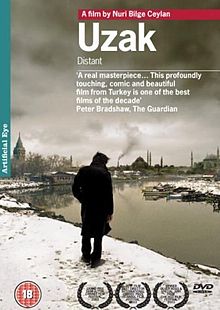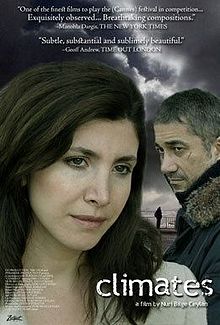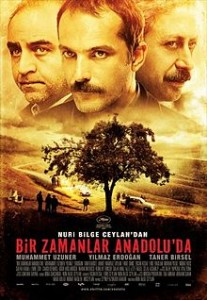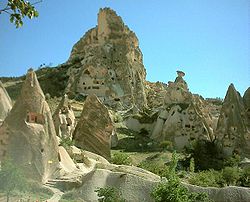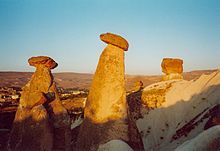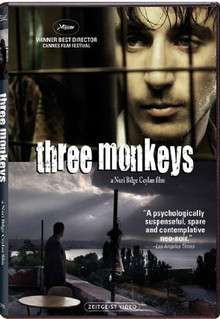 There may not be many people who, although they know Turkey as a name of a nation, have met someone in person from the country. I have fortunately been able to make some Turkish friends. Because of them, I think I was able to gain my own image about the country of Turkey.
There may not be many people who, although they know Turkey as a name of a nation, have met someone in person from the country. I have fortunately been able to make some Turkish friends. Because of them, I think I was able to gain my own image about the country of Turkey.
Turkish people have a very favorable opinion of Japanese people. Even a young child who has never actually met a Japanese person is taught by their parents, the media, and the society in general that the Japanese are respectable people. Most Westerners can’t tell Japanese and Chinese people apart, but a Turkish person who has really met a Japanese person says they can immediately tell the difference between Japanese and Chinese people. Japanese people tend to think that Turkish people are Islamic and Arabic in culture, but the country their culture is closest to is actually Greece. I have heard my Turkish friends complain that, “Europeans and Americans respect Greeks as the founders of ancient civilization, but look down on us as savage Muslims.” Most people are Muslim, but Islam does not hold a major role in the lives of the majority of the people in Turkey. Instead, they fear and oppose having the small number of fanatic Muslims gaining power and controlling the government.
Because Turkey shares its border with countries such as Iran, Iraq, and Syria, it wisely tries to maintain a friendly attitude in order to not provoke these countries. However, I think the true desire of the Turkish people is to establish strong relations with Europe and America, and live with Western standards. Turkey and Iran are two of the few countries within the Islam sphere that don’t have Arabic as their first language.
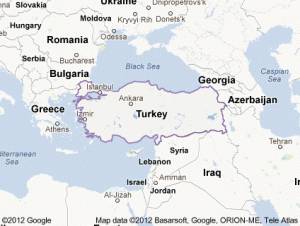 Turkey already economically and politically participates actively as a member of Europe and is classified as part of Europe by the Copenhagen Standard. Turkey government officially thinks of Turkey as a European country, belonging to Europe’s football organization and Olympics committee. Also, Turkey participates in European organizations such as NATO, Council of Europe, Western European Union, South-East European Cooperation Process, Southeast European Cooperative Initiative, and the Organization for Security and Co-operation in Europe; it signed the Declaration of Helsinki and has applied for membership in the European Union (EU). A few years ago, my Turkish friend told me about Turkey’s EU application and that there was very strong wariness about Turkey as an Islamic country among Europeans; he complained about the differential treatment by the EU towards Turkey versus other Eastern European nations that were easily admitted to the EU. Istanbul, along with Tokyo, is one of the finalists being considered to host the 2020 Olympics. This is a great opportunity to show that Turkey is a beautiful and respectable country, but it is unfortunate that the unrest in Turkey’s neighbor Syria may negatively affect the selection. Currently, Turkey who does not accept Syria’s behavior is having a skirmish with Syria at the border between Turkey and Syria. Turkey would have wanted to avoid this.
Turkey already economically and politically participates actively as a member of Europe and is classified as part of Europe by the Copenhagen Standard. Turkey government officially thinks of Turkey as a European country, belonging to Europe’s football organization and Olympics committee. Also, Turkey participates in European organizations such as NATO, Council of Europe, Western European Union, South-East European Cooperation Process, Southeast European Cooperative Initiative, and the Organization for Security and Co-operation in Europe; it signed the Declaration of Helsinki and has applied for membership in the European Union (EU). A few years ago, my Turkish friend told me about Turkey’s EU application and that there was very strong wariness about Turkey as an Islamic country among Europeans; he complained about the differential treatment by the EU towards Turkey versus other Eastern European nations that were easily admitted to the EU. Istanbul, along with Tokyo, is one of the finalists being considered to host the 2020 Olympics. This is a great opportunity to show that Turkey is a beautiful and respectable country, but it is unfortunate that the unrest in Turkey’s neighbor Syria may negatively affect the selection. Currently, Turkey who does not accept Syria’s behavior is having a skirmish with Syria at the border between Turkey and Syria. Turkey would have wanted to avoid this.
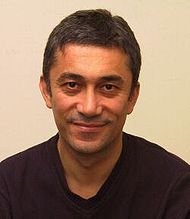 Nuri Bilge Ceylan who made Three Monkeys represents Turkey as a director and his past works have won awards at the Berlin International Film Festival award and Cannes International Film Festival Grand Prix. In particular, he became an international superstar when he won the Cannes Film Festival Best Director Award for Three Monkeys, but, unfortunately, none of his works have been released in Japan. In addition, even though he is a director in his mid-fifties, he is quite handsome and I think he would become popular with Japanese people if he were to be invited to Japan.
Nuri Bilge Ceylan who made Three Monkeys represents Turkey as a director and his past works have won awards at the Berlin International Film Festival award and Cannes International Film Festival Grand Prix. In particular, he became an international superstar when he won the Cannes Film Festival Best Director Award for Three Monkeys, but, unfortunately, none of his works have been released in Japan. In addition, even though he is a director in his mid-fifties, he is quite handsome and I think he would become popular with Japanese people if he were to be invited to Japan.
In Three Monkeys, politician Servet, driving home while tired from running his election campaign, accidentally hits a pedestrian and keeps driving. Afraid of a scandal, Servet convinces his driver Eyüp to take the blame for his hit-and-run crime in exchange for a monetary reward, so Eyüp is sent to prison. While Eyüp is in prison, his wife Hacer and Servet develop an intimate relationship. Eyüp’s son notices this love affair and the rough storyline of Three Monkeys is the lives of Hacer and Servet turning towards disaster as their relationship becomes serious.
What I thought was interesting when watching this movie is that it is very passive and subdued. There is no animalistic, aggressive violence commonly seen in Western movies. Even though this movie depicts a family crisis, the characters do not raise their voices, nor do they use violence. Everyone looks sad because they suppress their feelings and don’t express themselves. Also, everyone is unhappy in their own way; their foolish decisions pile up and no one seeks a constructive solution. I am urged to call out to them, “Sad? But you cannot blame anyone but you.” The music of an incoming call on the cell phone also sounds sad. It somehow resembles a Japanese enka ballad. Enka music is said to originate from Korea, but I wonder if its ancient origin might possibly be traced back to Turkey. At any rate, a subdued and sad tone is in the air throughout the movie. This director is very popular with Europe and America because of this sad tone is very unique. Although this feeling is similar to what Westerners feel about Japan, this movie is more gloomy and sad.
Another thing Nuri Bilge Ceylan is renowned for is the beauty of his images. Most of this movie is taken in a poor apartment in a poor area in Istanbul, but the cinematography is terrifyingly beautiful. You cannot understand it without actually watching it. It is really regrettable that it has not been released in Japan.
The story of this movie is not particularly noteworthy and it develops undramatically, but it made me want to see more of director Nuri Bilge Ceylan’s works. There is a mysterious charm to this movie.

